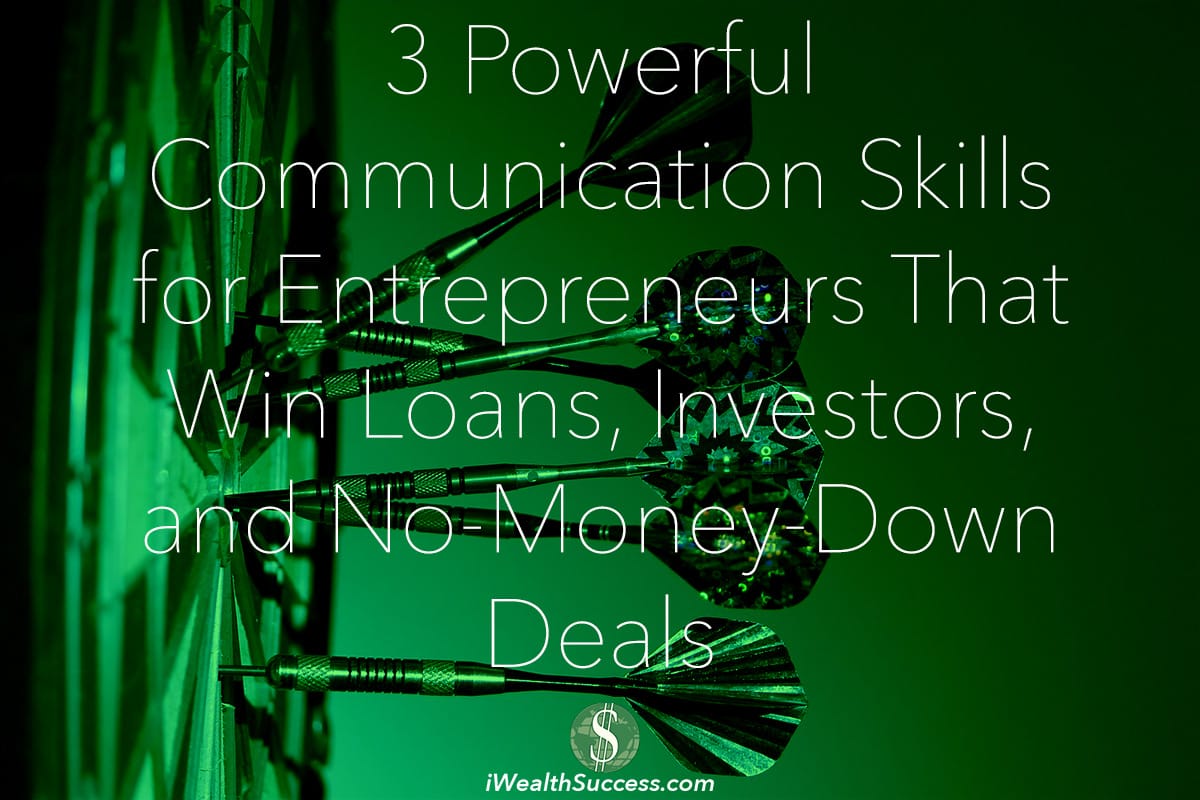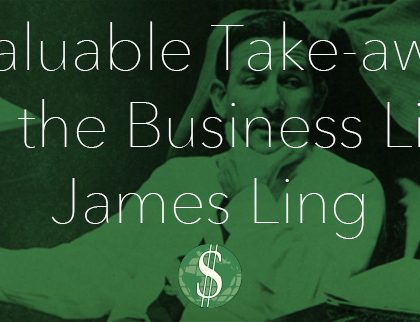Every great deal you’ve ever heard of began with a conversation.
Not a form. Not a spreadsheet.
A conversation.
For BWBs (Big Wealth Builders), mastering communication skills for entrepreneurs is not optional—it’s the lifeblood of winning loans, convincing investors, and securing no-money-down businesses. The wealth-builders who walk away with signed contracts, funded loans, and property deeds are rarely the ones with the most collateral. They are the ones who can communicate in a way that compels action, builds trust, and ignites a sense of opportunity in the other person.
You can acquire this skill—you can sharpen it.
And when you do, doors that once looked sealed tight will swing open with surprising ease.
Let’s talk about how—Tyler G. Hicks style.
The $2 Million Conversation
Years ago, a BWB I knew—let’s call him Raymond—had an idea for acquiring a chain of small industrial supply shops. He didn’t have the money for the down payment. What he did have was the ability to sit across from the retiring owner and talk.
Not just talk about the business. Talk into the vision.
He asked questions the owner had never heard from other buyers:
- “What was the proudest day you had running this company?”
- “What would make you feel certain your employees are taken care of?”
- “If you could still walk in here ten years from now, what would you like to see?”
The owner leaned back, softened, and began telling stories—about his first customer, about the good years and the tough ones. The conversation turned into a bond. And that bond turned into a handshake deal: owner financing for 100% of the purchase price, with Raymond making payments from the profits.
No formal pitch deck. No banker in the room. Just a man who knew that people don’t sell to spreadsheets—they sell to people they believe in.
That is the kind of entrepreneur communication skill that makes no-money-down deals happen.
Why Communication Skills Matter More Than Credit Scores
When you walk into a bank, a seller’s office, or a meeting with an investor, your financials are only one part of the equation. The other part—the often larger part—is the feeling you create in the room.
Credit scores can be rebuilt. Balance sheets can be structured. But the ability to connect with another human being, read their needs, and address their fears is irreplaceable.
Lenders and sellers want to know:
- Can this person lead?
- Will this person deliver?
- Does this person understand the opportunity from all sides?
You answer those questions not by pointing to numbers, but by showing—through your words, tone, and presence—that you are in command, you care deeply, and you know exactly how to make the venture succeed.
Three Core Communication Skills for Entrepreneurs
1. Storytelling That Sells
Facts inform. Stories persuade. When Tyler G. Hicks negotiated his way into high-value deals, he often used true stories of others who had succeeded. Why? Because a story plants a vision in the mind of the listener.
If you’re seeking a loan, don’t just say, “My business plan shows $500,000 in first-year revenue.” Tell the story of the market you’re serving: “I spoke with a shop owner who has been in this industry for thirty years, and she said she’s never seen demand like this. Customers are calling her weeks in advance. That’s the demand we’re stepping into.”
2. Questioning That Reveals Gold
Most entrepreneurs ask surface-level questions. The great ones dig deep.
Instead of asking a seller, “How’s business?”—which invites a shrug—ask:
- “If you could start again from scratch, what would you do differently?”
- “What is the one thing you’ve always wished the business could do, but never had the chance?”
These questions reveal motivations, fears, and hidden opportunities—often the very levers you can pull to create a no-money-down structure.
3. Confidence Without Arrogance
Confidence is not puffing your chest or speaking over people. It is a calm certainty in your own vision. You communicate it by:
- Maintaining steady eye contact.
- Speaking in clear, unhurried sentences.
- Smiling at the right moments—not as a tactic, but as a natural expression of enthusiasm.
When people feel your certainty, they begin to see themselves in your vision.
The Day a Loan Officer Changed His Tune
One of our IW$ readers, a woman named Denise, walked into a local bank looking for $350,000 to purchase a small-town hotel. The loan officer flipped through her documents and shook his head. “We don’t usually finance hospitality businesses without more cash down.”
Instead of retreating, Denise leaned forward and said, “I understand your concern. May I tell you a story about the owner of this hotel?”
She painted a vivid picture of the hotel’s history, its loyal guests, and the bookings already on the calendar for the next six months. She spoke of her own background running events, and how she planned to turn the hotel into the region’s premier wedding destination.
The loan officer stopped tapping his pen. He started asking questions—not about her credit score, but about her plans.
Three weeks later, she had her loan.
Denise told me afterward, “If I had just left my documents on the desk, they’d have said no. It was my story that turned the meeting.”
No-Money-Down Deals Are Built in Conversations, Not Contracts
Contracts finalize deals, but they rarely create them. The creation happens in conversation.
One BWB I worked with, Jason, was looking at buying a struggling car wash. The seller wanted $200,000 up front. Jason couldn’t do it. Instead of walking away, he took the owner to lunch.
For two hours, they talked—not about numbers, but about why the owner was selling, what his next move was, and what he wanted for his employees.
Jason found out the owner was retiring to Florida and dreaded the thought of shutting down and laying off his staff. Jason proposed this:
- He would take over operations immediately.
- Profits for the first year would go to the seller as payments.
- After that, a balloon payment would close the sale.
The seller said yes. Why? Because Jason showed he understood the seller’s goals and fears. That connection was worth more than cash.
Training Yourself to Communicate Like a Closer
You don’t have to be born with charisma to master this skill. Communication skills for entrepreneurs are learned, practiced, and refined until they become second nature.
Here’s how to train:
1. Practice Your Pitch Aloud Every Day
Speak your proposal into a recorder. Play it back. Listen for hesitations, filler words, and rushed sentences. Refine. Repeat.
2. Study Great Communicators
Watch videos of successful entrepreneurs pitching investors. Notice their pacing, their pauses, their use of stories.
3. Role-Play Negotiations
Find a friend or mentor to play the role of banker, seller, or investor. Practice answering their toughest questions with clarity and poise.
4. Keep a Deal Journal
After every conversation, write down what went well, what connected, and what you could improve. Over time, you’ll see patterns and sharpen your instincts.
The Invisible Currency
Communication is the invisible currency of the entrepreneur. It’s what turns skeptical lenders into partners. It’s what turns hesitant sellers into collaborators. It’s what turns a “We’ll think about it” into a “Let’s do this now.”
When you walk into your next meeting, remember:
- Your loan application is the paper.
- Your conversation is the pen.
And the pen, in skilled hands, writes the deal you want.
A Final Word for the BWB Ready to Step Up
If you’ve been struggling to get the financing you need or to close that no-money-down acquisition, don’t assume the obstacle is your lack of cash or your balance sheet. More often than not, the real gap is in the way you’re communicating.
The most powerful tool you have doesn’t cost a dime. It’s the way you listen, the way you ask, and the way you speak.
Master this, and you’ll join the ranks of the BWBs who walk out of meetings with keys, contracts, and commitments—secured not by force, but by skill.
As Tyler G. Hicks would say: “Every fortune begins with a conversation. Make yours count.”





